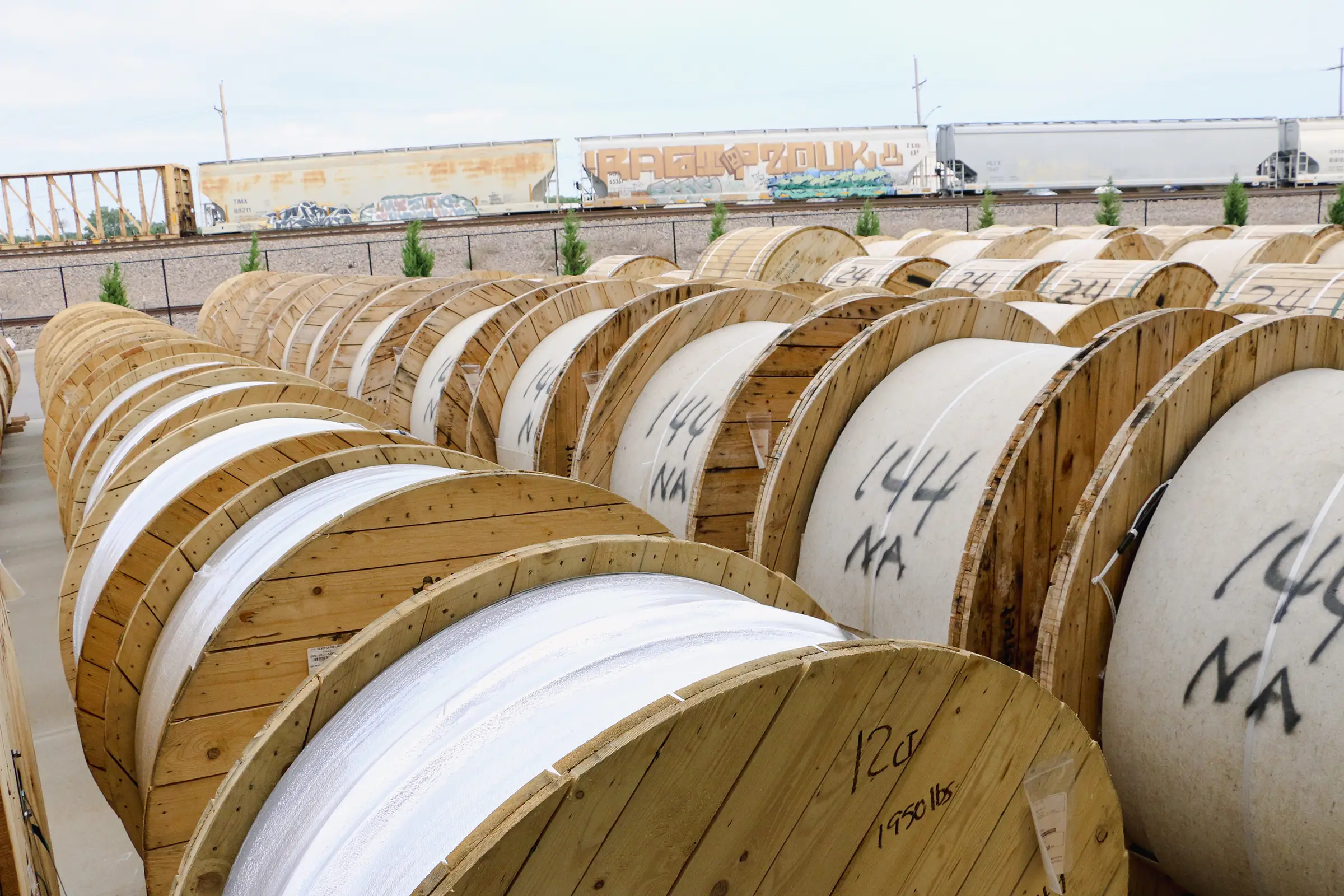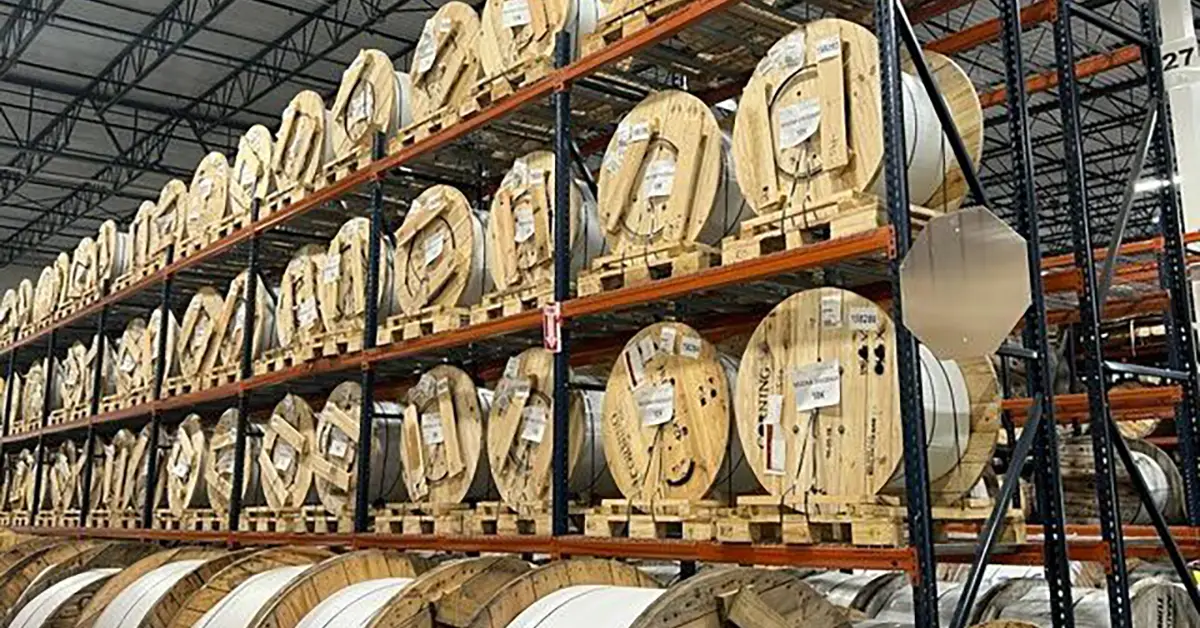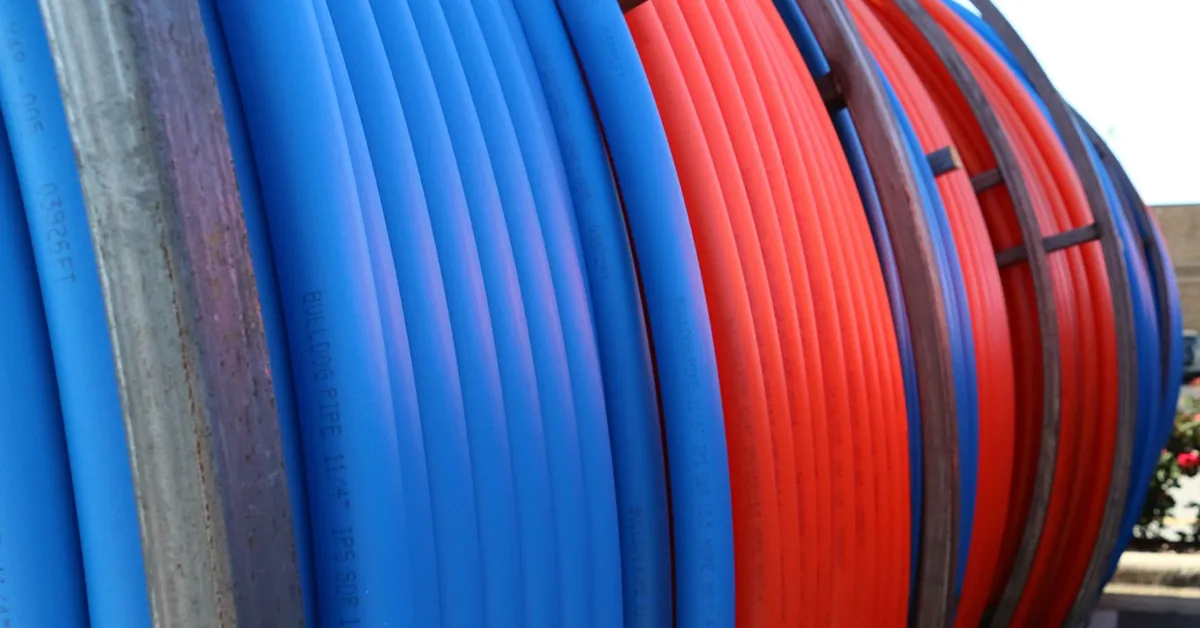Fiber Optic Cable 101
Fiber Optic Cable 101
We are often asked what exactly Fiber Optic Cable is and why it is so popular. So many people have heard of it but genuinely do not understand it. After all, here at Adams Cable Equipment, we have over 50 million feet of it in stock, ready to ship today. So, let’s dive into what exactly Fiber Optic Cable is and why it is so important.
Fiber optic cable is the backbone of modern communication systems, providing a fast, reliable, and secure way to transmit data over long distances. It is used in a wide range of applications, including telecommunications, data centers, healthcare, and industrial automation.
What is Fiber Optic Cable, and how does it work?
Fiber optic cable is made up of ultra-thin strands of glass or plastic, known as fibers, which transmit light signals over long distances. The fibers are coated with a protective material and bundled together to form a cable that can withstand harsh environments and extreme temperatures.
One of the key advantages of fiber optic cable over traditional copper cable is its ability to transmit data over much longer distances without losing signal strength. This is because fiber optic cable use light to transmit data, which is less affected by interference and attenuation than electrical signals used in copper cable. The fiber core is surrounded by a cladding layer that has a lower refractive index than the core, which causes the light to bounce back into the core rather than escaping through the sides.
The fibers themselves are incredibly thin, with a diameter of less than a human hair. They are made of glass or plastic, which are both transparent materials that allow light to pass through them. When a light signal is sent through the fiber, it bounces off the walls of the core, following a zigzag path that keeps it contained within the fiber.
Advantages of Fiber Optic Cable
- High Bandwidth: Fiber optic cable has a much higher bandwidth than copper cable, meaning they can transmit more data at once. This is because light signals can be modulated at much higher frequencies than electrical signals.
- Long Distance Transmission: As mentioned earlier, fiber optic cable can transmit data over much longer distances without losing signal strength. This makes them ideal for long-haul telecommunications and internet infrastructure.
- Immunity to Interference: Fiber optic cable is immune to electromagnetic interference, making them ideal for use in areas with a lot of electrical noise.
- Security: Because fiber optic cable transmit data using light, they are much harder to tap or intercept than traditional copper cable. This makes them ideal for transmitting sensitive data, such as financial or medical records.
- Durability: Fiber optic cable is designed to withstand harsh environmental conditions, including extreme temperatures and moisture. This makes them ideal for use in industrial or outdoor settings.
Fiber optic cable is essential to modern communication systems, providing fast, reliable, and secure data transmission over long distances. With their high bandwidth, immunity to interference, and long-distance transmission capabilities, fiber optic cable is quickly becoming the standard for internet and telecommunications infrastructure.
Are you looking for fiber optic cable stock at a fantastic price? We have it in stock! Adams Cable Equipment has over 50 million feet of Corning, Wavenet, Waveoptics, Lexington Ames, and Gaon in our yard, ready to ship to you today. Call us – you will be glad you did!!!!

READ OUR NEWS AND UPDATES
Read our Kick ACE blog to stay up to date on the latest from Adams Cable Equipment! We share industry news, product expertise, and company updates to keep you informed.


